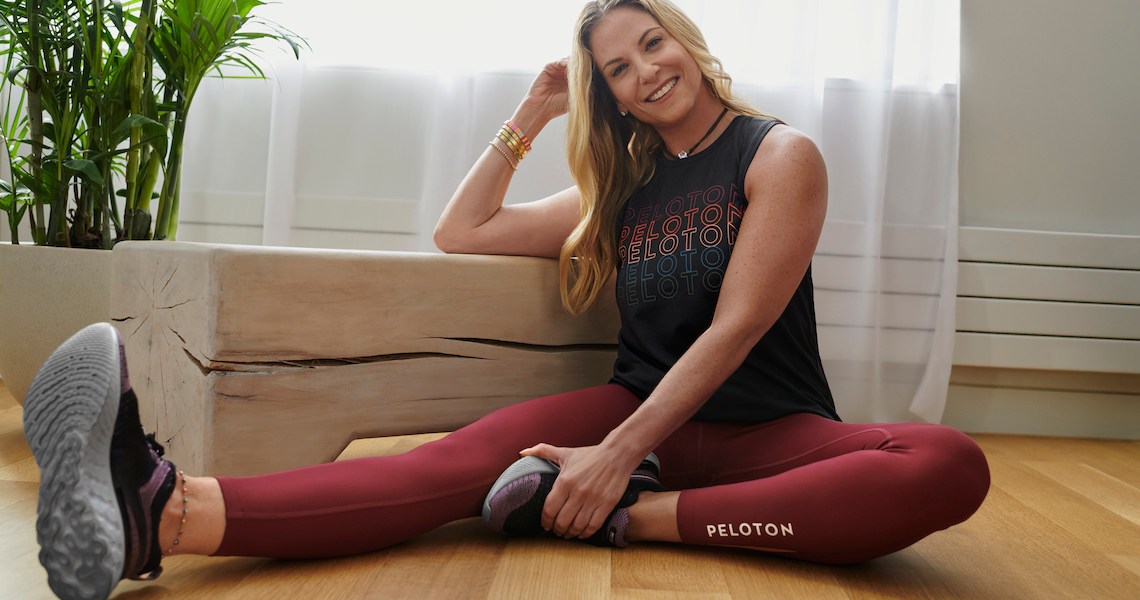Peloton is the latest fitness company to see the potential in activewear. While the company has historically sold licensed apparel, on Thursday it launched its first–ever full–range private label called Peloton Apparel.
Since 2014, Peloton has mostly approached apparel through collaborations, like the ones announced earlier this year with Adidas and Verzuz. Peloton Apparel, on the other hand, is designed in-house and produced by Peloton. The collection is a mix of men’s, women’s and gender-neutral clothing priced from $15-$118. Each piece was wear-tested by Peloton members, as well as the brand’s celebrity-esque trainers. Jill Foley, vp of retail at Peloton, said the private label is the culmination of three years’ worth of work.
“Our apparel business started out small,” Foley said. At first it was just Foley and intern Julie Whisler, who is now the senior director of apparel merchandising, marketing and retail operations. who were working on the private label offering. “Our members quickly started asking for more than what we were offering, and we came to a point where we knew we needed to be able to take control of the product — the design, the fit, the fabrics, everything. We built out a team, in order to do just that — investing in our own product and design teams.”
Foley said she doesn’t have specific revenue projections for the apparel line, but she hopes that it can serve as both a brand-building tool and a revenue driver. To market the collection, Peloton is leaning heavily on its instructors, some of whom have hundreds of thousands of followers on Instagram — like Robin Arzon, with 844,000. It’s also relying on social media and out-of-home advertisements in key markets like New York City.
“You’ll see our instructors and members featured in our online marketing, our social channels and our out-of-home advertising,” Foley said. “Our instructors continue to serve as great advocates for the product line, often posting try-ons or their class outfits to social media. We’ll continue to incorporate instructors in authentic ways that align with their individual style and personal brands, as well.”
Activewear is big business right now. The pandemic helped fuel the category to massive growth that hasn’t let up. Lululemon saw an 88% increase in sales in the first quarter of 2021, while Under Armour reported a 35% year-over-year increase in sales from 2019 to 2020. Peloton’s most recent earnings were slightly below analyst expectations, following a $400 price cut to its signature bicycle, bringing it down to $1,495. The company said the rationale was to make the product more accessible.
But even before the pandemic, fitness companies were interested in the potential of apparel. Soulcycle also moved from selling licensed apparel to launching its own in-house design and product teams and selling private label in 2019. That transformation was led by Caroline Gogolak, who has since left Soulcycle to start her own brand, Saint Art.
Ad position: web_incontent_pos1
Foley said apparel wasn’t ever a part of Peloton’s business plan until organic demand from consumers led the brand in that direction. Luckily, activewear is having a moment that doesn’t look like it’s ending soon.
“The good news is a return to ‘normal life’ will be a slow process and is guaranteed to look different for everyone,” said Krista Corrigan, retail analyst at Edited. “Investments made over the past year in activewear and comfort-driven apparel will not go to waste.”




